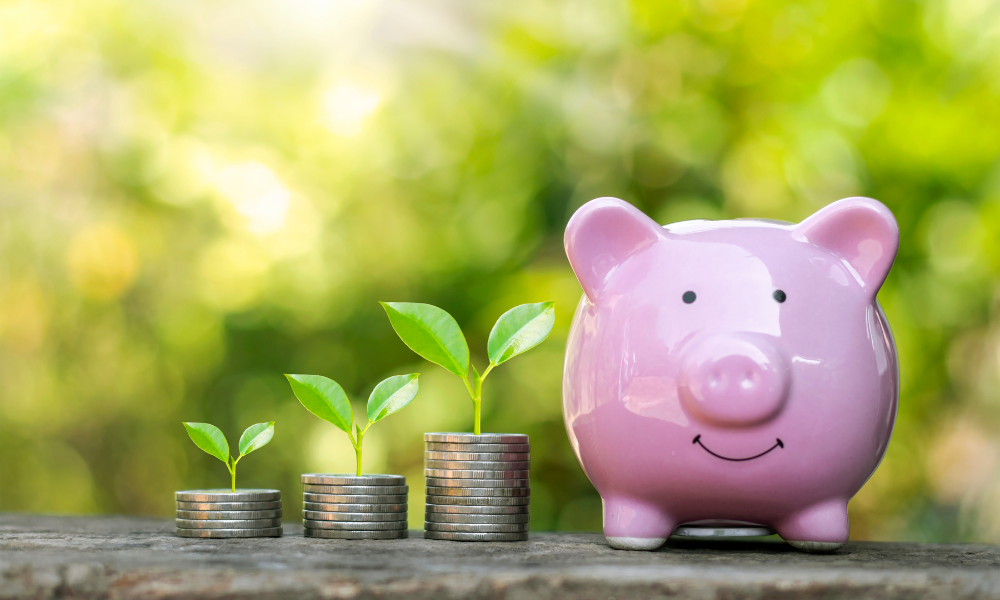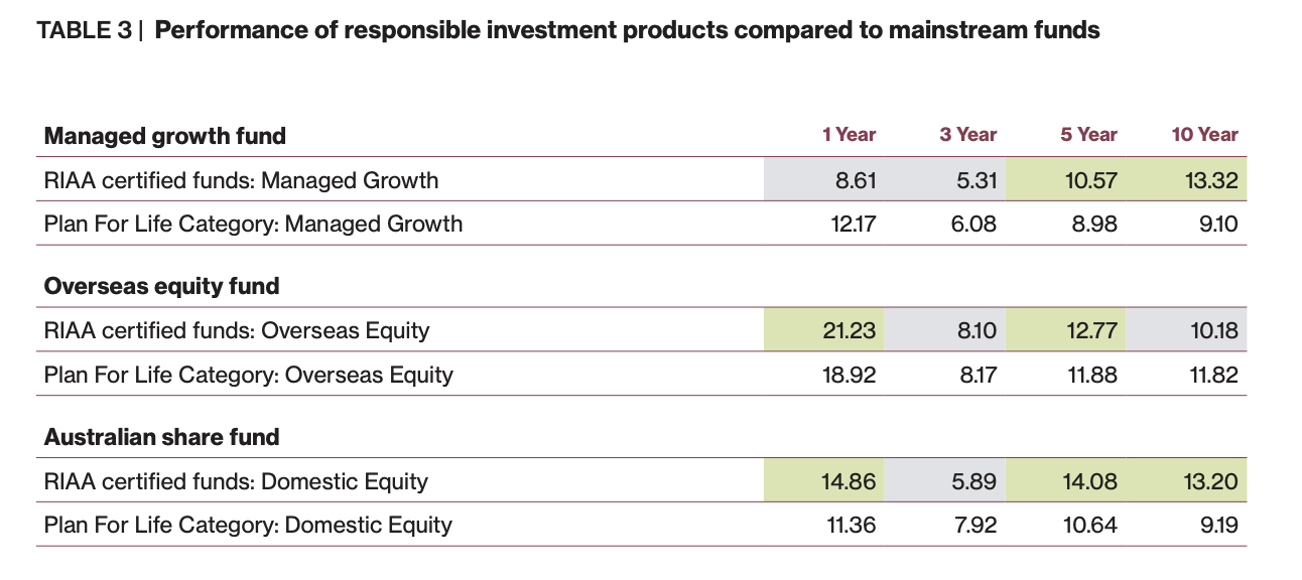ESG investing: is it really worth it?
Article written by Jason Choy, InvestNow Senior Portfolio Manager – 29th April 2025

For many investors, financial returns aren’t everything. Yes, they’re important, but not at any cost.
For example, how would you feel if your portfolio was up 20% this year – but then you learned those gains were tied to companies involved in the manufacture of controversial weapons, or with a history of high fossil fuel emissions? Suddenly, the numbers may not feel so rewarding.
Values-based investing means considering factors outside of just profits. It’s about aligning your investments with your principles, and letting both ethics and analysis guide your decisions.
What is ESG?
ESG stands for Environmental, Social and Governance. It’s a business acronym that encapsulates ethical practices in these key areas.
- Environmental factors such as sustainability, carbon emissions and waste management.
- Social factors such as how a company treats employees and communities, and its approach to diversity and inclusion.
- Governance includes transparency, leadership, company ethics etc.
ESG can be factored into investment decisions, aiming to support companies that can display best practice, or evidence meaningful progress, in one or more of these aspects.
How do I factor in ESG?
According to Mindful Money, 75% of New Zealanders want their KiwiSaver or investment fund to be invested ethically and responsibly.
ESG investing can be about more than just choosing what to, and what not to, invest in. If you value ESG principles, you can apply this in a few different ways:
- Excluding companies or industries that don’t live up to your standards or beliefs.
- Seeking out the very best performers in ESG metrics that are important to you.
- Focusing on themes or industries that solve certain challenges, such as clean energy or sustainable agriculture.
- Investing in companies and using shareholder rights to engage and push for better ESG practices.
While many New Zealand fund managers are increasingly integrating ESG factors as part of their standard investment process, the extent of their focus can differ significantly from one manager to another.
For example, John Berry, CEO of leading ethical investment firm Pathfinder, notes their ESG standards excludes approximately 25% of the investment universe – showing how seriously some managers take ethical screening.
Similarly, fund managers can make decisions in real time if they perceive a shift in a company or fund’s ESG profile. Pathfinder divested its shares in BlackRock in 2023 after the appointment of a prominent oil company CEO to its board.
What impact does ESG have on returns?
It may be tempting to say that investing according to your values, rather than making an out-and-out financial decision, can lead to fewer returns.
And yes, investing is almost always about generating a good return.
So does it? It depends on who you ask.
In 2022, the Harvard Business Review said “ESG funds certainly perform poorly in financial terms.”
But the Responsible Investment Benchmark Report Aotearoa New Zealand 2024 found responsible investment funds generally outperformed mainstream funds, particularly over 5 and 10 year periods, and particularly in Managed Growth and Australian Share fund categories.

Source: Responsible Investment Benchmark Report Aotearoa New Zealand 2024
While ESG-focused funds can have higher management fees compared to more vanilla options – which can impact returns – there is no definitive reason why an ethical investment couldn’t generate the same (or better) return as one that doesn’t prioritise ESG.
What’s happening in the ESG world in 2025?
In 2025, the idea of responsible investing is seemingly at a bit of a crossroads.
On one hand, the world has been building towards more sustainable and ethical ways of doing things for years now.
But at the same time, there is some resistance. Today’s US political regime is playing a prominent role in pushing back against DEI (Diversity, Equity and Inclusion) and promoting drilling for fossil fuels, which conflicts with core pillars of ESG.
Big name companies and leaders such Meta founder Mark Zuckerberg have followed suit, placing the value and future of ESG under the global microscope.
But, according to some New Zealand fund managers, there are many reasons to remain positive about ESG practices.
- Pathfinder’s John Berry says while ESG is polarising in the US, Europe has strong momentum towards it, while Asia and the Pacific show growing interest in values-based investing.
- Harbour Asset Management’s Sue Walker describes the movement as “temporary” and “more of a reset than an unwind.”
- Mint Asset Management’s Rachel Tinkler says “just because the Trump administration is removing regulations, that doesn’t mean the risks aren’t still there.”
Today’s environment is a good example of the InvestNow Investing Principle: Stay informed, but don’t react to the noise.
While it’s good to be across what’s happening in the world, knee-jerk reactions to over-cooked headlines – particularly those pushing immediate action based on the latest economic or political events – typically hurt investors more than they help.
True investing success is rarely built on short-term moves. Rather, it’s based on crafting (and sticking to) a long-term investment strategy that’s aligned with your goals and principles.
Developing an ESG strategy
If you want to invest according to your values to any extent, it pays to formalise that as part of your investment strategy. This can help to guide your decisions and provide a framework for how you achieve your financial (and non-financial) goals.
Your strategy should outline what’s important to you from an ESG standpoint, so you can then look for investments that align to it.
There can be a lot to think about in ESG, so here are some starters:
- Are there industries you don’t want to support, i.e. weapons, tobacco, fossil fuels? (See here for categories of potentially harmful investments)
- What are the environmental implications of businesses you might invest in?
- Do you have the time and inclination to look into a company’s ESG performance? If not, then is there a reputable ESG-focused investment manager you could trust to do this?
- Do you want to devote a portion of your portfolio exclusively to investments that satisfy your ESG criteria?
Resources
There are a range of tools you can use to help both develop an ESG investment strategy and make ESG-related decisions with your investments.
It pays to recognise that ESG is often subjective. It’s for you to decide what’s acceptable and what’s not. You can rely on various authorities to guide your decisions, but you may also want to look behind their rationale to understand how they’ve made their recommendations, and if that aligns with you.
This helps when definitions of ESG best practice change, or when ESG guidelines, well intentioned as they may be, have the potential to have disruptive real world implications.
Read more: Why ESG extreme exclusionists should concern investors
Notwithstanding that, these are some useful authorities that can guide your ESG investment decision making.
- Ethical Investing New Zealand helps New Zealanders to invest according to their values.
- Mindful Money allows you to assess and score a KiwiSaver or a Managed Fund based on a variety of ESG factors.
- The Responsible Investing Association has members across fund managers, KiwiSaver providers and other investment organisations to help them stay up to date on ESG investing practices.
- Responsible Investing in a Polarised Landscape webinar recording hosted by Jason Choy, InvestNow’s Senior Portfolio Manager, with Pathfinder, Mint and Harbour Asset Management.
Whatever value you place on ESG, it helps to keep it in the appropriate context.
Investing according to your values will not automatically change the world for the better. At the other end of the spectrum, it also doesn’t mean you’ve gone totally soft and will miss out on huge returns from the funds you overlook.
ESG is just one element of an overall investment strategy. How much (or how little) you prioritise it within your investment portfolio is unique to you as an individual.
That’s why at InvestNow, we provide a range of ESG and vanilla investment options, so that you can build an investment portfolio that meets your specific goals and values.
Disclaimer:
This information is provided by InvestNow Saving and Investment Service Limited (“InvestNow”). The information and any opinions in this publication are based on sources that InvestNow believes are reliable and accurate. InvestNow, its directors, officers and employees make no representations or warranties of any kind as to the accuracy or completeness of the information contained in this publication and disclaim liability for any loss, damage, cost or expense that may arise from any reliance on the information or any opinions, conclusions or recommendations contained in it, whether that loss or damage is caused by any fault or negligence on the part of InvestNow, or otherwise, except for any statutory liability which cannot be excluded. All opinions and market commentary reflect InvestNow’s judgment on the date of this publication and are subject to change without notice. This disclaimer extends to any entity that may distribute this publication. The information in this publication is not intended to be financial advice for the purposes of the Financial Markets Conduct Act 2013, as amended by the Financial Services Legislation Amendment Act 2019. In particular, in preparing this document, InvestNow did not take into account the investment objectives, financial situation and particular needs of any particular person. Professional investment advice from an appropriately qualified adviser is recommended before making any investment. All Investments involve risk.




Leave A Comment